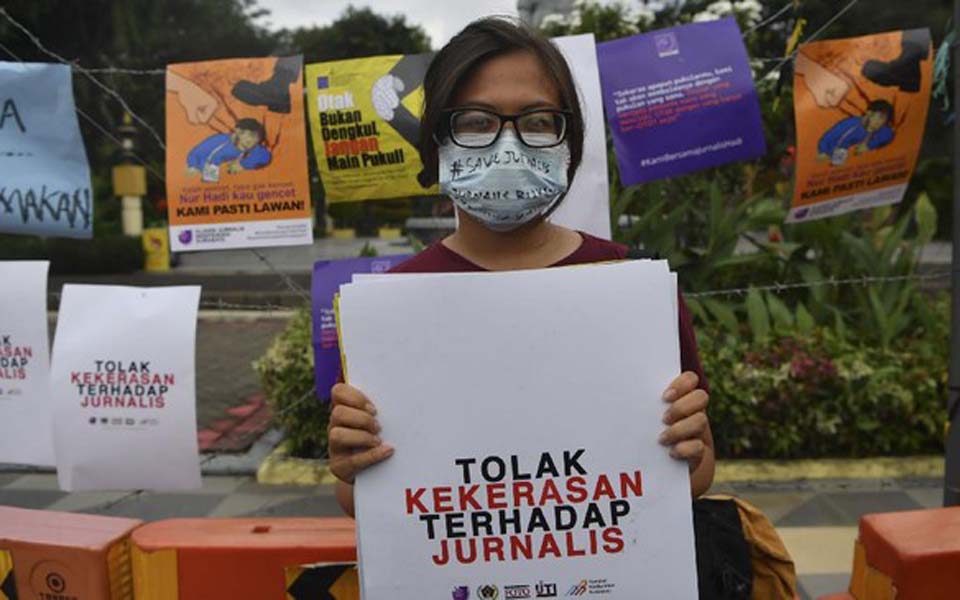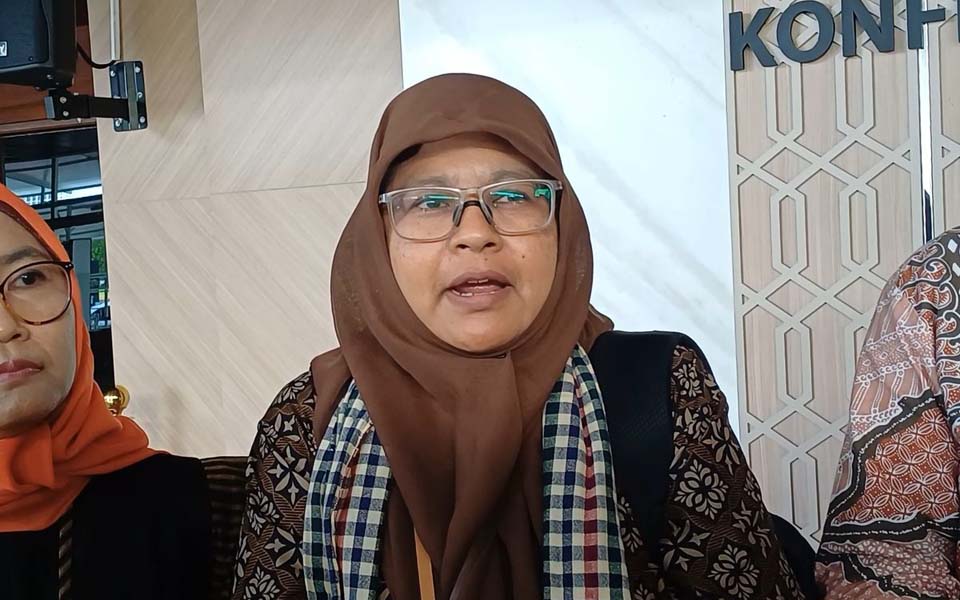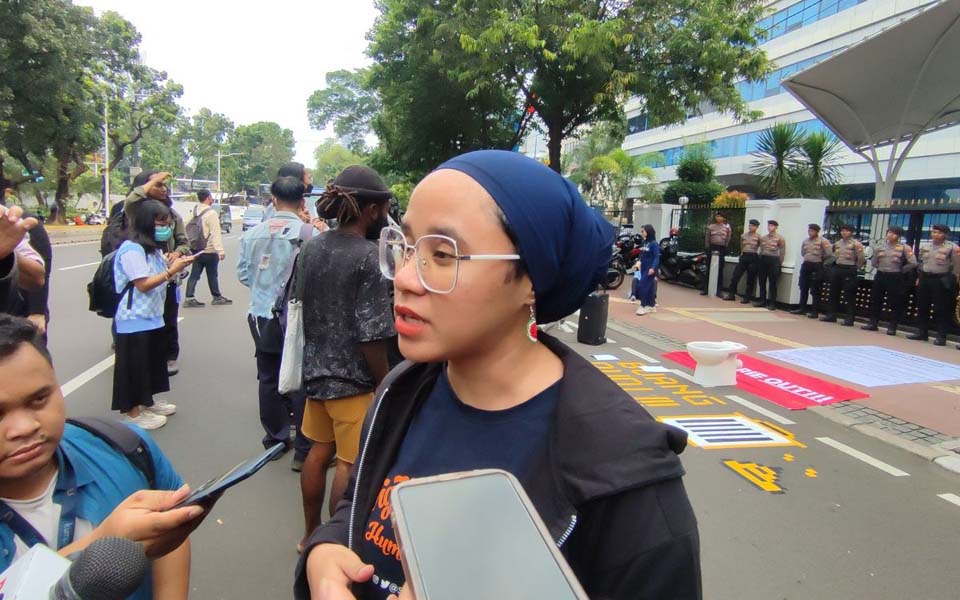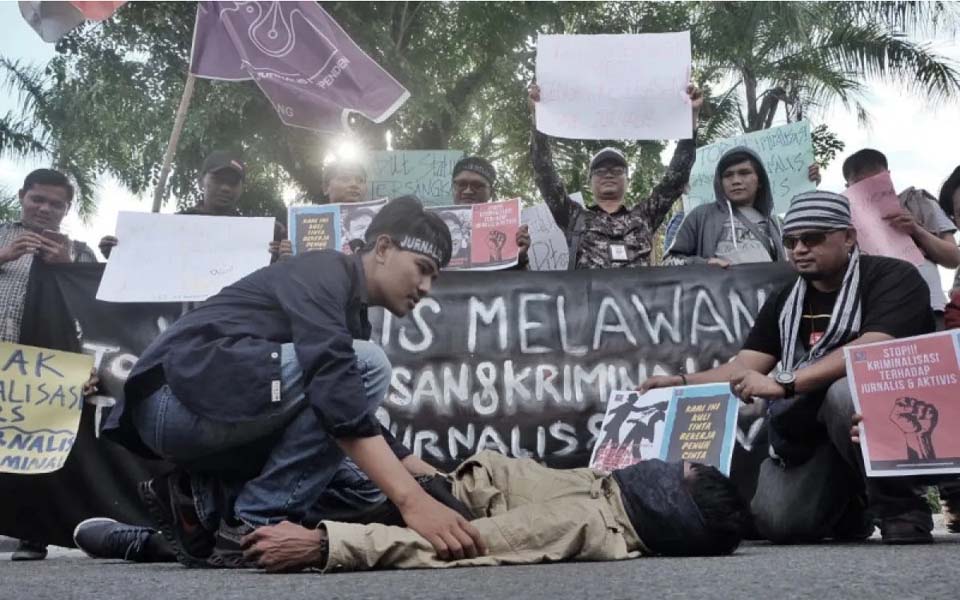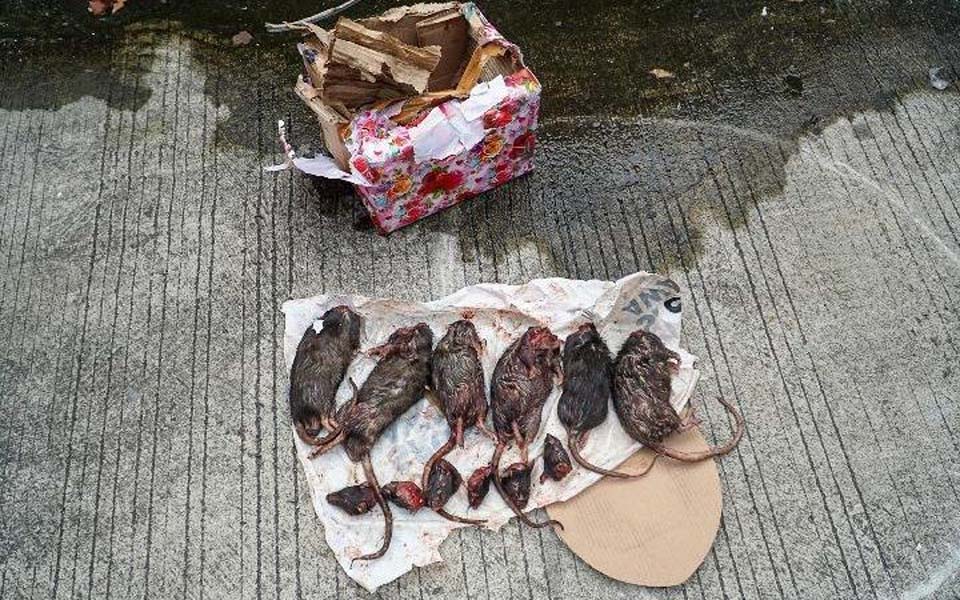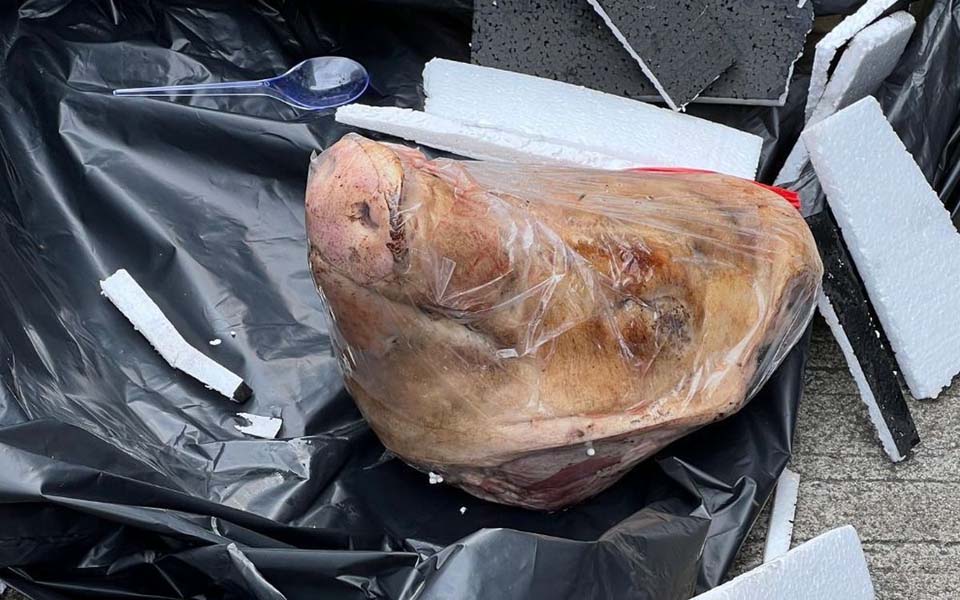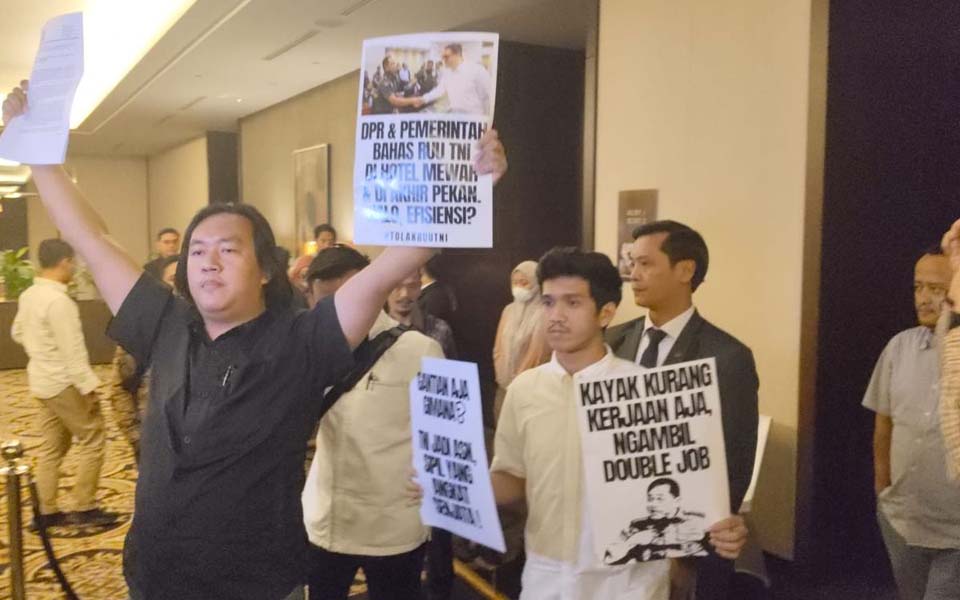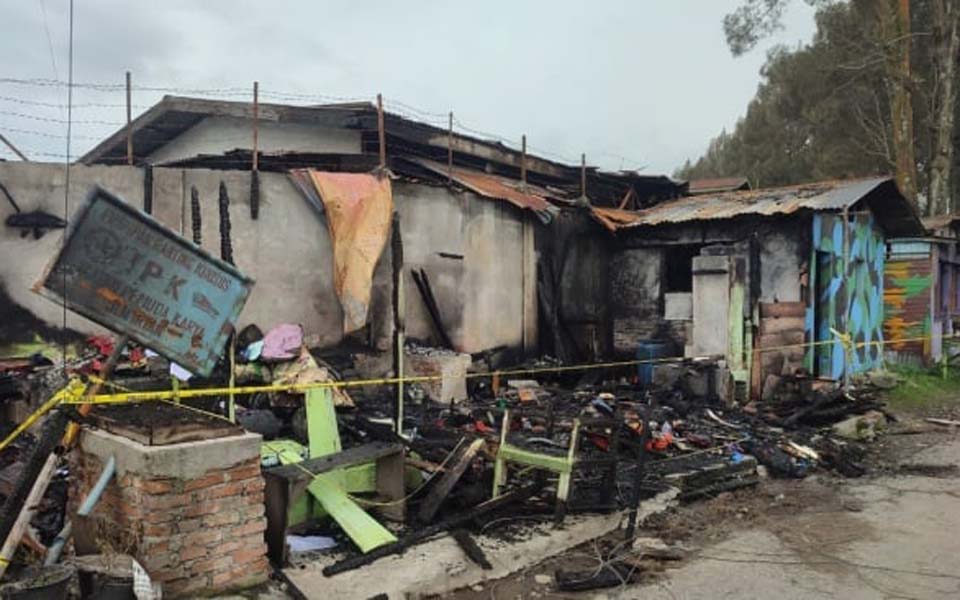Jakarta – The Indonesian Alliance of Independent Journalists (AJI) believes that cases of violence and terror against journalists are becoming increasingly worrying. This is evident from AJI's records, which shows that there were 22 cases of terror and violence against journalists in the first three months of 2025 alone.
"From [the start of] 2025, there have been 22 cases that have been submitted to AJI. Imagine how many cases there are in a month? That means every week or maybe once every three days there are cases of violence", said AJI Chairperson Nani Afrida during a Committee for the Safety of Journalists (KKJ) online press conference on Sunday March 23.
Nany said that over the past three years, AJI has received various reports of cases of violence against journalists, where the majority of cases have simply evaporated.
In 2022, AJI recorded more than 100 cases of violence against journalists. However, only 16 cases were then reported to the police and only two of them were resolved by the courts or had permanent legal rulings. "Out of the 16 cases, only two cases were resolved legally, but they were classified as minor crimes. So they were not considered serious", said Afrida.
In 2023, AJI received 89 reports of violence against journalists. However, only 16 cases were forwarded to the police. "Only 16 cases were reported to the police and there was no follow-up at all. There is no clarity as to where these cases are at", said Afrida.
Furthermore, in 2024, there were 73 cases reported to AJI by a number of journalists. Of the dozens of cases reported to the police, only one case was resolved legally.
"And that was a minor crime. So you could say that even if we report it to the police, it is not necessarily resolved. And out of the several cases that we reported to the police, dozens of cases were not reported, maybe because the journalists did not want the case to be reported, or coincidentally there was a sense of frustration because if it was reported it would not necessarily be resolved like previous cases", she said.
Culture of impunity
This phenomenon, said Afrida, is a result of an increasingly powerful culture of impunity in Indonesia. Perpetrators of violence against journalists often escape the law, and when punished, the verdict received is very light.
"And the ones who get got aren’t the masterminds, but the executor. We feel this situation is very serious and you can say we feel unsafe working as journalists. There's a sense of fear and worry", she said.
Afrida explained that in the Tempo case, after the terror of the pig's head being sent to the Tempo offices in Jakarta then reported to the National Police Criminal Investigations Directorate (Bareskrim), a second act of terror actually occurred the very next day.
According to Afrida, this indicates that the perpetrators are not afraid because they know that there is impunity under the law in Indonesia. "We also ask why these cases of intimidation, these cases of violence are not resolved? It could also be that the law does not side with journalists", she said.
"Many cases of content are reported to the police, even though they should be reported to the Press Council if there is a relationship with journalism. But the police still take these cases and process them. This is also our concern because between there is already a MoU [Memorandum of Understanding] between the Press Council and the police", continued Afrida.
Afrida hopes that the National Police can immediately do something so that these figures on cases of violence do not just remain a statistic.
One act of violence against a journalist, she said, is a reflection that democracy is being disrupted. If journalists begin to no longer believe in the law because of impunity, Afrida worries that the quality of journalism in Indonesia will decline.
"If it gets like this, what we are worried about is that the quality of journalists will decrease, journalistic quality will decline. People are afraid to report and what's called self-censorship can occur here, and that's what has been predicted by AJI, that there will be even more [case of violence] in the future", she concluded. (blq/dmi)
[Translated by James Balowski. The original title of the article was "22 Kasus Kekerasan Jurnalis di 2025, AJI Soroti Budaya Impunitas".]





